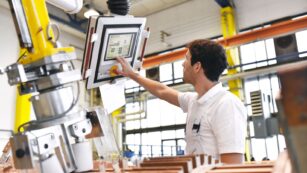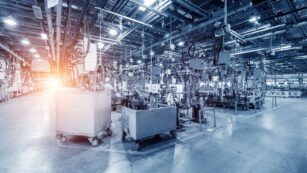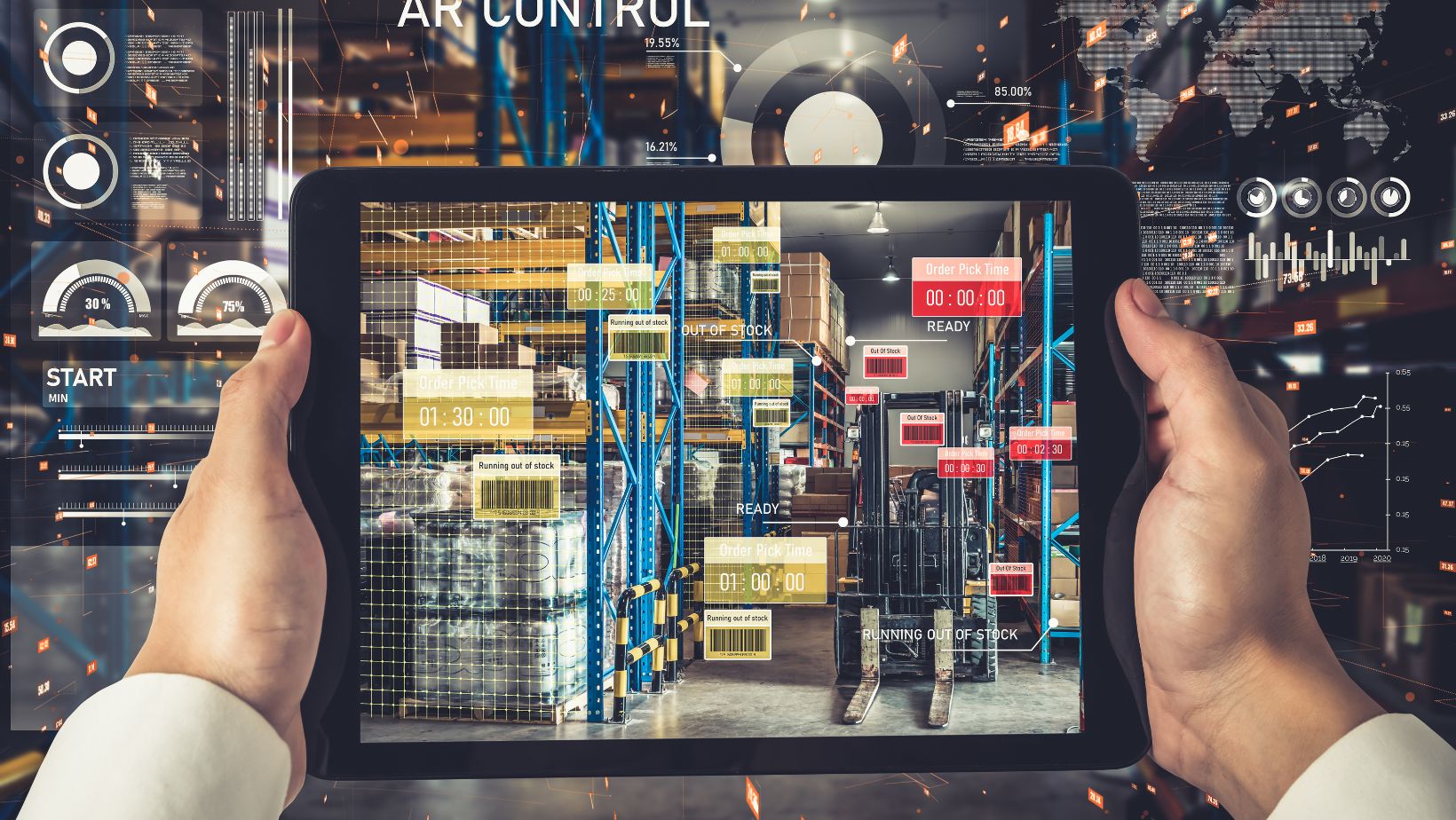In the fast-paced world of manufacturing, technology is a game-changer. It’s the secret sauce that keeps businesses ahead of the curve, enabling them to streamline operations, reduce costs, and deliver superior products. But what exactly is manufacturing business technology, and why is it so crucial in today’s competitive landscape?
Manufacturing Business Technology
The Role of Technology in Modern Manufacturing
 Manufacturing business technology plays a pivotal role in modern manufacturing processes. Technological advancements contribute to improving operational efficiency, enhancing safety standards, and boosting product quality. For instance, robotics offers accuracy and speed that is beyond human capability, resulting in increased production levels. The adoption of cutting-edge technologies also provides labor-intensive industries with the opportunity to automate routine processes, freeing up human resources for more complex tasks. Case in point, the use of Automated Guided Vehicles (AGVs) in warehouses neglects the need for manual labor in the transportation of items. This not only increases the productivity but also minimizes the risk of accidents.
Manufacturing business technology plays a pivotal role in modern manufacturing processes. Technological advancements contribute to improving operational efficiency, enhancing safety standards, and boosting product quality. For instance, robotics offers accuracy and speed that is beyond human capability, resulting in increased production levels. The adoption of cutting-edge technologies also provides labor-intensive industries with the opportunity to automate routine processes, freeing up human resources for more complex tasks. Case in point, the use of Automated Guided Vehicles (AGVs) in warehouses neglects the need for manual labor in the transportation of items. This not only increases the productivity but also minimizes the risk of accidents.
Key Technologies Transforming the Industry
The landscape of manufacturing business technology is constantly evolving. Below are four key technologies that are significantly transforming the industry:
- Artificial Intelligence (AI): AI serves as the backbone of productive manufacturing. It’s instrumental in making complex decisions, accelerating processes, optimizing quality control, and facilitating predictive maintenance.
- 3D Printing: This technology plays a crucial role in prototyping and the production of intricate parts, reducing both time and cost.
- Internet of Things (IoT): IoT devices gather and analyze data for improved operational efficiency. They often serve as early-warning systems for potential issues in the production line.
- Blockchain: While still in its nascent stage in manufacturing, blockchain offers potential benefits in supply chain management, ensuring transparency and traceability across all stages.
These technological innovations not only streamline day-to-day operations but also imbibe a culture of continual improvement and innovation in the manufacturing industry.
Innovations in Manufacturing Processes
Building on the foundation of advancements in manufacturing business technology, myriad innovations continue to revolutionize the landscape. Keeping the focal point on the information shared earlier, this section will dive deeper into some crucial breakthroughs in manufacturing processes.
Automation and Robotics
In the realm of manufacturing technologies, automation and robotics stand out as game changers. These technologies heighten production capabilities, push boundaries of efficiency, and alleviate risks to human workers. Robots, for instance, execute repetitive actions faultlessly, offering consistency in quality. Additionally, they perform dangerous tasks, bolstering workplace safety. Whereas, automation, in its various forms, streamlines the workflow, cutting out inefficiencies. In its wake, it leaves patterns of amplified productivity, robust problem-solving capabilities, and accelerated response times.
capabilities, push boundaries of efficiency, and alleviate risks to human workers. Robots, for instance, execute repetitive actions faultlessly, offering consistency in quality. Additionally, they perform dangerous tasks, bolstering workplace safety. Whereas, automation, in its various forms, streamlines the workflow, cutting out inefficiencies. In its wake, it leaves patterns of amplified productivity, robust problem-solving capabilities, and accelerated response times.
Additive Manufacturing and 3D Printing
Moving on to additive manufacturing and 3D printing, these two technologies bring versatility to the table. They allow for the creation of complex geometries, customization of products, and efficient usage of raw materials. 3D printing as an example, bestows benefits such as decreased lead times, waste reduction, and flexibility in design. On the other hand, additive manufacturing facilitates on-demand fabrication, rendering storage of large inventory obsolete. This shift lends itself to lean manufacturing, reducing overall operational costs.
Advanced Materials and Smart Factories
 Next in line are advanced materials and smart factories. Advanced materials, ranging from composites to nanomaterials, endow products with enhanced performance features such as increased durability, lighter weight, and improved functionality. Smart factories, empowered by IoT, AI, and machine learning, are ushering in a new era of digital manufacturing. By connecting systems and processes, these factories paint a picture of real-time data and analytics. It informs decision making, stimulates dynamic response to changes, and drives continuous improvement. From predictive maintenance to seamless supply chain integration, smart factories transform the manufacturing landscape with their sophisticated capabilities.
Next in line are advanced materials and smart factories. Advanced materials, ranging from composites to nanomaterials, endow products with enhanced performance features such as increased durability, lighter weight, and improved functionality. Smart factories, empowered by IoT, AI, and machine learning, are ushering in a new era of digital manufacturing. By connecting systems and processes, these factories paint a picture of real-time data and analytics. It informs decision making, stimulates dynamic response to changes, and drives continuous improvement. From predictive maintenance to seamless supply chain integration, smart factories transform the manufacturing landscape with their sophisticated capabilities.



